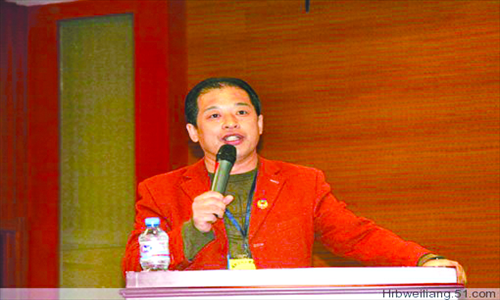How to be a successful drunk

Alcohol has always been a gateway to making connections, but in China, where connections are often crucial to business success, wine and alcohol are of paramount importance. Those skilled in drinking and schmoozing can often put their ambitions on the fast track.
Chen Ming (pseudonym), a construction contractor from Harbin, Heilongjiang Province, proved with his own experience that drinking, with the right social skills, can be so productive that one bottle of wine ended up netting him 30 million yuan ($4.87 million).
In March, 2010, Chen hosted a banquet in one of the most expensive restaurants in Harbin for a visiting delegation of government officials. During the meal, Chen held up his wine glass and proposed a toast.
"People say traveling is better than reading a thousand books, but I say the honor of meeting all the leaders who are present at the banquet today is better than traveling a thousand miles."
Chen's toast was given high praise by the visiting officials and quickly brought both sides together for follow-up conversations. By the end of the night, Chen was granted a government infrastructure contract worth more than 30 million yuan.
Chen did not come up with those words by himself. The once introverted man spent more than 1,000 yuan on the "toasting technique" taught by Xiu Weiliang, the principal of the Harbin Weiliang Art of Communication School.
From drinking to public speaking, Xiu taught his students, a majority of which are government officials and management-level business people, how to "drink their way to success" and "talk their way up to a bright future."
Xiu's critics say that he is promoting corruption and degrading society, but Xiu says his teachings mirror Chinese culture and represent the desire for success in the modern age.
S pilling wine on the path
"I don't just teach people how to drink. There are plenty of wine or alcohol tasting classes out on the street. I teach my students the wisdom of drinking, the art of bonding with people through drinking, the very path to success," Xiu told the Global Times.
Xiu, now in his 50s, was originally a wedding planner and a party host. He started his first wedding planning company in Harbin in 1994. As competition grew fierce, he closed his wedding company in 2005 and decided to turn his years of experience into a bigger and more creative business.
"In China, business isn't usually conducted at the office, but rather, at the dinner table with alcohol," said Zhuang Kexia, a lecturer at the Weiliang Art of Communication School. "Especially in northern China. Those who don't understand the culture at the table have trouble getting things done. People consider drinking and friendship one and the same. The unspoken rule is that how much you drink reflects how affectionate you feel toward that person."
Many of Xiu's students learned this rule the hard way after they graduated from college and entered society. They now come to Xiu for solutions.
An anonymous student who graduated from Xiu's drinking class in 2011 told the Global Times that he found the class very helpful for his career.
"I feel more confident at dinner tables. When you know drinking etiquette and what to say at the table, people look at you as a mature person with enough social experience and trust you with more responsibility," said the student.
Calm before the storm
To Xiu's understanding, the art of communication lies in two things, a sense of propriety and the detail of one's language.
"It's about saying the right thing at the right time to the right people," said Xiu. "Especially now that the central government forbids officials from enjoying luxury meals and wines, how you work your network is something worth thinking about."
Aside from his past experience as a party host, Xiu constantly try to find inspiration from books and television. He says he has collected books on networking, table etiquette, biographies of successful people and ancient Chinese wisdom regarding human relations. He also says that he often studies speeches made by politicians from around the world.
According to Xiu, he has taught more than 4,000 students, many of whom return to him when they need advice, which he offers without charge. "I am doing them a favor and some day they will do me a favor too," said Xiu, "What is the use of money? Confucius made no money but he had 3,000 students. He has been revered and remembered to this day."
In 2006, Xiu established the Weiliang Networking Salon in which he hosted activities that introduce successful people to each other.
"In a society like China, where connections mean almost everything, a networking association like this can help our students achieve their goals in life," said Zhuang.
Critics step forth
After the Southern Weekly and some other media reported on Xiu's "drinking classes," he was bombarded by calls from both potential students and protesters.
Many called him the new master of the art of "thick and black," meaning those who are thick-skinned and have a black heart.
"We have enough self-taught corrupted government officials. A training school for corruption is just too much," read one of the popular comments that had been reposted thousands of times.
Xiu said he felt saddened by such comments but understood that a lot of the anger was geared toward officials and the rich.
"My school stems from people's desire to be successful. And in this society, in this culture, these are the things success requires," said Xiu.
Scholars and analysts, on the other hand, said they were concerned about the existence of such schools.
"Classes like this may prove to be useful at one time but in the long run hurt societal morality. A healthy society should reward people based on how much they actually contributed, not how much they drink and pretend to have contributed," Zhang Xin, a public management professor from the Renmin University of China, told the Global Times.